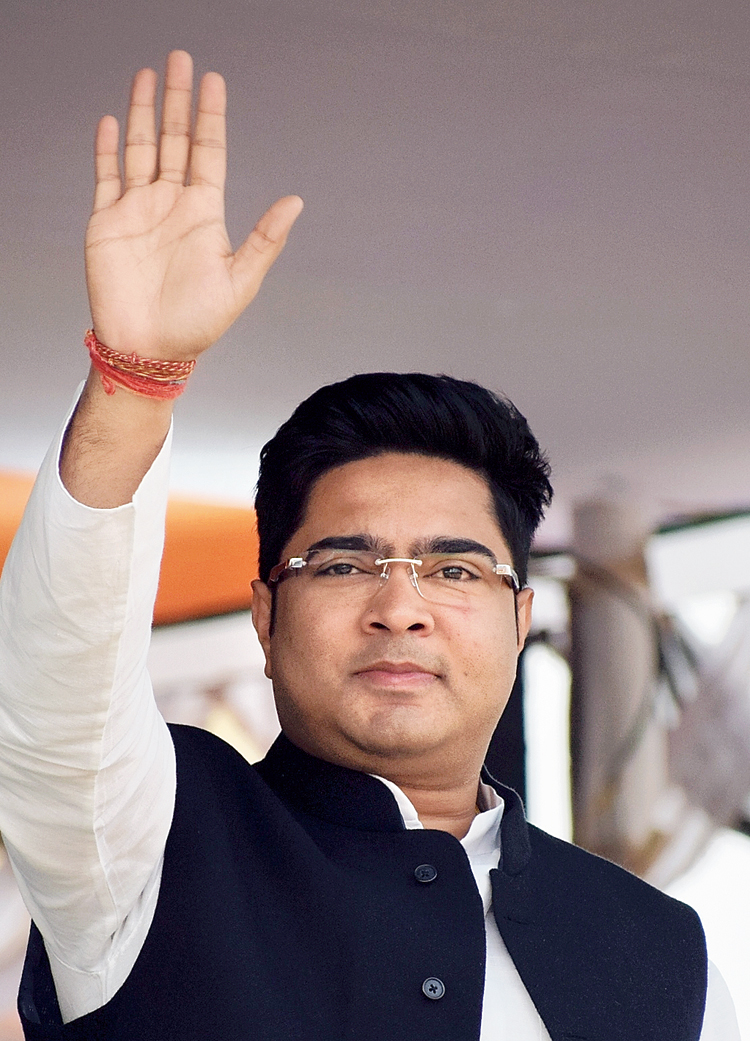The youth wing of the Trinamul Congress on Thursday launched an “apolitical” programme called Bangla’r Jubo Shokti (Bengal’s Youth Power) to get one lakh people aged between 18 and 35 on a single platform to fight the Covid-19 pandemic and participate in relief and rehabilitation activities in the areas hit by Cyclone Amphan.
Youth wing chief and the ruling party’s de facto Number Two, Abhishek Banerjee, launched the programme with a brief, live message on Facebook at 4pm, urging youths to set aside all differences and join hands to help Bengal get back on its feet.
“We are all faced with a very difficult and critical situation today. Especially those of us who live in Bengal, we are faced with a multi-faceted crisis. Because while even the biggest nations of the world have the challenge of only fighting Covid-19, our state, Bengal, we are proud of, has been fighting two cataclysms, that too simultaneously,” said the Diamond Harbour MP.
“I believe that without making it about you or me, if we all work together, our joint efforts will… definitely get Bengal to overcome the damages and losses and restore normality. I request everyone to come forward to help Bengal in this dark hour, by setting aside all differences…. Let’s rise above politics for this,” Abhishek added. “Politics will always be an integral part of democracy… but human lives are of foremost importance.”
A 10-member coordination committee has been formed for the initiative and that comprises Trinamul’s youth leaders such as Debraj Chakraborty, Samrat Tapadar and Debangshu Bhattacharya.
As of 8.30pm on Thursday, the initiative had received 4,450 registrations from 323 blocks and 174 towns.
A month from Thursday, there will be a mega virtual orientation programme, in which a meet-and-greet exercise with the one lakh members of the initiative will happen. The members will also be apprised of their duties and responsibilities and showed how they can help rebuild the state.
A Bengal minister said poll consultant Prashant Kishor and his Indian Political Action Committee were major contributors to the planning and the execution of the Bangla’r Jubo Shokti programme.
“It was, on paper, apolitical. Because we are not sure people would appreciate mainstream politics and election-driven campaigns as they grapple with the pandemic and the aftermath of Amphan,” said the minister.
“Having said that, we do know that most of those who come forward would be Trinamul-leaning and with an interest in politics,” he added.











